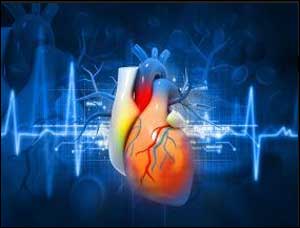- Home
- Editorial
- News
- Practice Guidelines
- Anesthesiology Guidelines
- Cancer Guidelines
- Cardiac Sciences Guidelines
- Critical Care Guidelines
- Dentistry Guidelines
- Dermatology Guidelines
- Diabetes and Endo Guidelines
- Diagnostics Guidelines
- ENT Guidelines
- Featured Practice Guidelines
- Gastroenterology Guidelines
- Geriatrics Guidelines
- Medicine Guidelines
- Nephrology Guidelines
- Neurosciences Guidelines
- Obs and Gynae Guidelines
- Ophthalmology Guidelines
- Orthopaedics Guidelines
- Paediatrics Guidelines
- Psychiatry Guidelines
- Pulmonology Guidelines
- Radiology Guidelines
- Surgery Guidelines
- Urology Guidelines
New recommendations on use of dual antiplatelet therapy in TIA

Aspirin and clopidogrel have synergistic action, so it is plausible that the two drugs together may provide better secondary prevention. However, they are not useful in the long term after stroke and considered to be too risky for a major stroke. Also, there is an uncertainty of risk and benefit balance for short-term use after a minor stroke or high risk for TIA.
Key recommendations are :
- Expert panel strongly recommend initiation of DAPT (clopidogrel and aspirin) within 24 hours of the onset of symptoms, as soon as the imaging results exclude intracranial haemorrhage or as soon as a clinician makes a diagnosis of minor ischaemic stroke or TIA, for 10-21 days
- Reduces non-fatal recurrent stroke in the first 90 days by 1.9% (high-quality evidence)
- Reduces the incidence of moderate or severe functional disability by 1.4% (moderate-quality evidence)
- Reduces the incidence of a poor quality of life by 1.3% (moderate-quality evidence).
- DAPT has little or no impact on all-cause mortality and incidence of myocardial infarction or recurrent TIA (moderate-quality evidence).
- DAPT also has some harms, it may increase moderate to major extracranial bleeding events by 0.2% (moderate-quality evidence) and minor extracranial bleeding events by 0.7% (high-quality evidence).
- Dosing of antiplatelets:
- Clopidogrel: A loading dose of 300 mg and dose of 75 mg thereafter seem reasonable as bleeding could be marginally greater on a higher loading dose.
- Aspirin: Dosage between 75 mg and 345 mg is reasonable. Some clinicians may prefer to use low range of dosage to minimise harm.
- The addition of second agent to aspirin such as clopidogrel increases the cost of the treatment, though it is widely available and relatively inexpensive and has short-duration of use.
Health care systems can adapt these recommendations by including costs and other related key issues, contextualised to national and local circumstances.
The international guideline panel comprised of 3 patients with lived experience of stroke, 1 adult who cared for someone with a stroke, 5 stroke neurologists, 1 vascular surgeon, 1 health research methodologist, 5 general internists, 1 nurse, 1 physiotherapist, and 1 critical care physician. They judged death, nonfatal stroke, major extracranial bleeding, functional ability, and quality of life as critical outcomes. The panel examined the systematic review and meta-analysis of RCTs analysing the benefits and harms of DAPT vs single-agent antiplatelet in order to create various recommendations.
For more details click on the link: doi: https://doi.org/10.1136/bmj.k5130
British Medical JournalClopidogrelDAPTdual antiplatelet therapyminorminor ischaemic strokenonfatal strokesingle-agent antiplateletstrokeTIAtransient ischaemic attack
Source : With inputs from BMJNext Story
NO DATA FOUND

Disclaimer: This site is primarily intended for healthcare professionals. Any content/information on this website does not replace the advice of medical and/or health professionals and should not be construed as medical/diagnostic advice/endorsement or prescription. Use of this site is subject to our terms of use, privacy policy, advertisement policy. © 2020 Minerva Medical Treatment Pvt Ltd